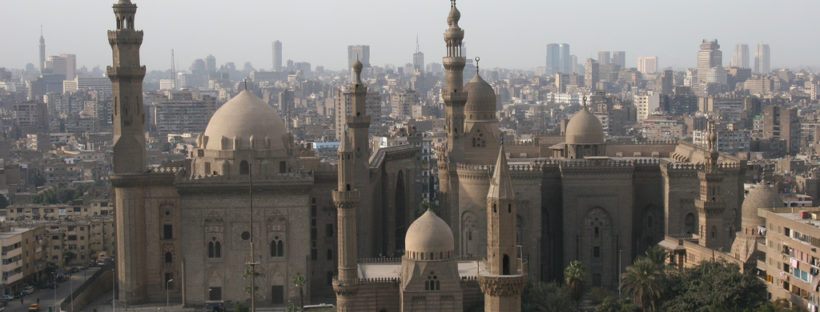 Recounting nearly 30 years of Egyptian history in three Cairo summers, Yasmine El Rashidi‘s Chronicle of a Last Summer: A Novel of Egypt drives readers through an evolving — perhaps even crumbling — country on the brink of revolution. At the heart of El Rashidi’s story are the unnamed narrator and her ever-dwindling family. The changes in the city and its politcal landscape are subtle as the narration moves from the mid-1980s to the Arab Spring in 2011, but the comings and goings of her family are not.
Recounting nearly 30 years of Egyptian history in three Cairo summers, Yasmine El Rashidi‘s Chronicle of a Last Summer: A Novel of Egypt drives readers through an evolving — perhaps even crumbling — country on the brink of revolution. At the heart of El Rashidi’s story are the unnamed narrator and her ever-dwindling family. The changes in the city and its politcal landscape are subtle as the narration moves from the mid-1980s to the Arab Spring in 2011, but the comings and goings of her family are not.
Chronicle of a Last Summer feels as claustrophobic and congested as the dark, stuffy house in the novel’s first part. The prose lilts and flows, but El Rashidi keeps her details close to the vest. Silence, in Chronicle, is both a political and a rhetorical tool, and serves as the meat of the text, primed for excavation.
If you’re looking for an easy, not-too-literary read, look elsewhere. Despite clocking in at just under 200 pages, Chronicle of a Last Summer makes for dense reading, moreso if you close-read. If you don’t, you might find yourself on the last page, wondering what happened that it’s all over so suddenly, and without any major changes to the protagonist. As is the case with the novel’s representation of Cairo, the narrator’s evolution is there. It just isn’t obvious.
Speaking of obvious, those who are not familiar with Sadat, Mubarak, and the uprisings that placed and deposed them will find few answers within the text. When Uncle, Father, and Dido throw around differing and dissenting political opinions, Western readers who are accustomed to doing so may find it difficult to align themselves with one or the other, to say, “Yes, he is right.”
Then again, perhaps that is the point.
My rating: 4 of 5 stars
I received a copy of this book from Blogging for Books in exchange for this review.
Read all my reviews and follow me on Goodreads!
Image Credit: Chris Brown
